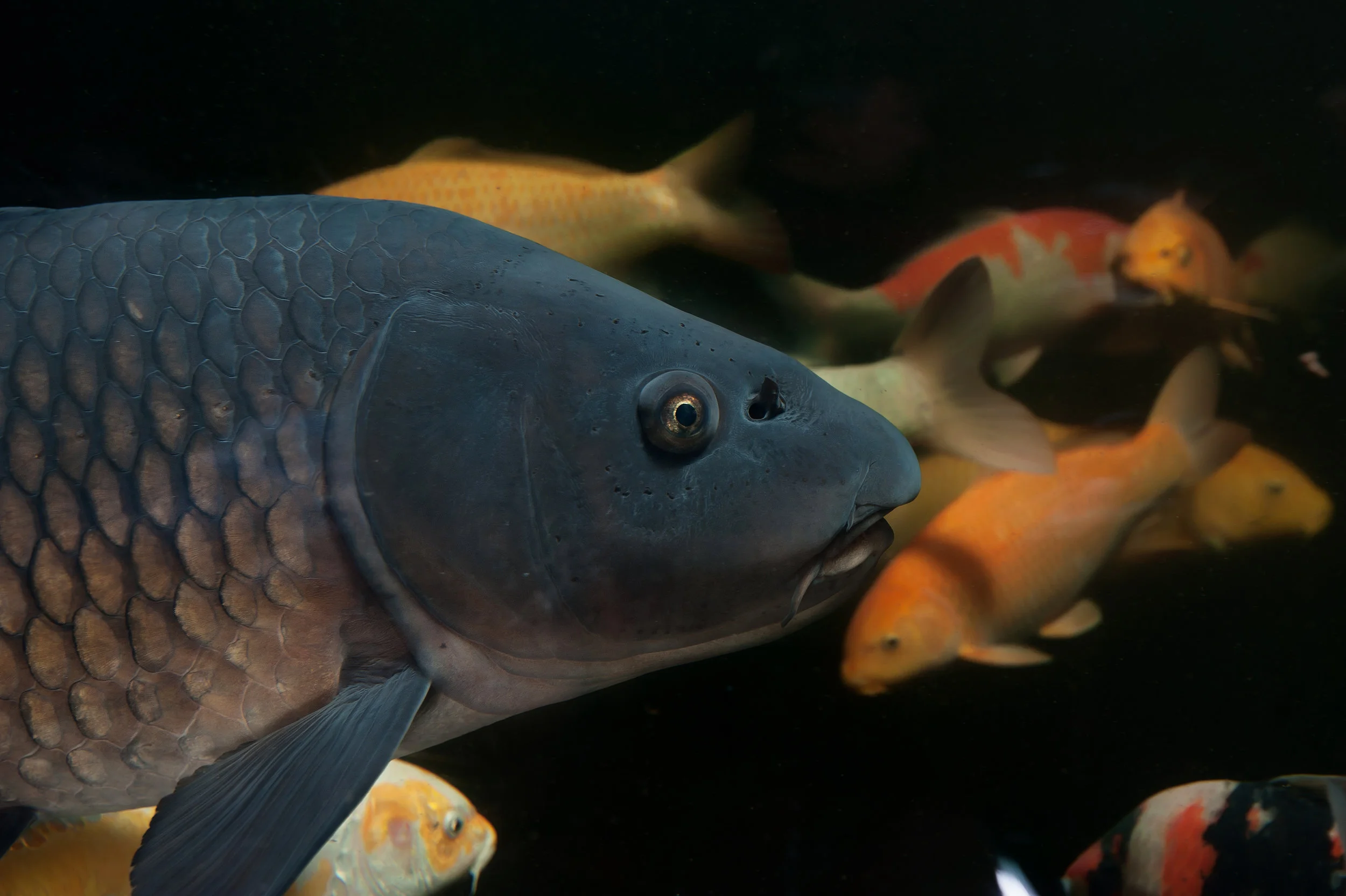The Many Kinds of Koi Fish Behavior
Knowing your koi fish and how they interact with the world around them is essential to koi keeping. Recognizing patterns of behavior through the different times of the year will provide you insight with your pond. It can also keep your fish healthier and happier and will allow you to more quickly diagnose any problem that comes up. Here’s a guide to the many varieties of koi fish behavior!
A Friendly and Healthy Koi
Koi are a friendly fish. Upon arrival in your pond, they may take time adjusting and familiarizing themselves. After quarantining your koi, set a feeding schedule and stick to it. Once these koi have become accustomed to their new environment and to you, they will get friendlier. When feeding them, make sure to sit by the pond so that they learn to recognize you. Koi that grow comfortable enough with their keepers will come to the surface and eat out of their hands. They may even leap out of the water as you walk by!
Everything you need to learn and care for your koi fish
Koi Fish Care Handbook | Learn more about how to care for your koi, common behaviors and more.
Koi Predator Control | Provides koi fish a place of protection from predators.
Submersible Water Pump | Helps circulate gasses for an oxygen-rich environment for koi fish.
Koi Health & Disease | Learn how to best care for you koi and and identify common behaviors.
Stressed Koi
Koi act differently when they’re stressed, which comes from new or unfamiliar situations. They also hate quick changes – especially when being moved into a new pond or tank, or rapid temperature fluctuations. A stressed out koi may skip out on a feeding by hanging near the floor of the pond. They may become less friendly and more lethargic. Sometimes stressed koi will jump or rub against the edges of a pond. Stress also manifests itself in koi fins. They may look bloodshot or ragged at the edges.
There are many factors that result in a stressed koi. They may be threatened by predators outside of the pond. The water may have been polluted by fertilizer run-off. Or, the problem could be inside the pond. Run a water test to make sure all chemical needs are being met. If the pond is overpopulated, this may also be stressing your koi out too.
Sick Koi
A stressed koi will often become a sick koi, as stress weakens the immune system. While each sickness will have its own symptoms to watch for, there are a few major signs that signal your koi fish is ill. One indicator of sickness in your koi fish is their behavior. If they are speeding around the pond or acting sluggish, they may be sick. If their once-graceful swimming is now clumsy and uncoordinated, they may be under the weather. Look into these odd behaviors in our articles on koi care, koi fish diseases, and performing check-ups.
Leaping Koi
If your koi are taking leaps or gasping at the surface of the pond, this may mean there is too little oxygen in the water. Consider various oxygenating options. Perform a partial water change, clean the filters, and vacuum out any debris. If the pond is very deep with little surface area, enough oxygen may not be entering and circulating through the water. You may want to consider expanding the pond or even installing a waterfall or fountain to naturally aerate the water. Oxygenating pond plants will also naturally add more oxygen to the water. Other signs that your koi pond is oxygen deficient are excessive algae growth and strong odors.
Learning to recognize the different koi fish behaviors in your pond is an essential part of koi keeping. With a little familiarity you could be fixing problems in your pond in no time!







